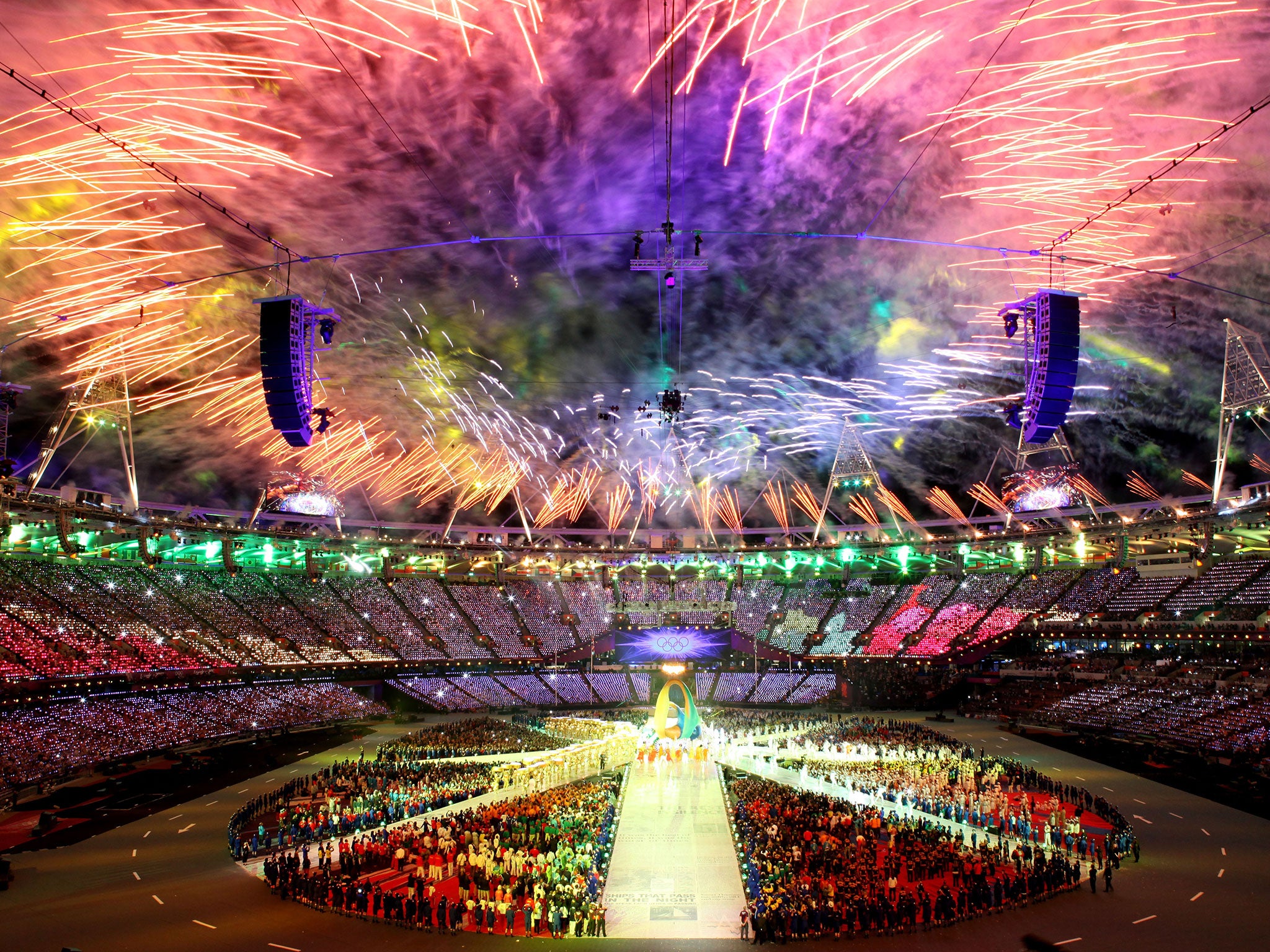Every party lays claim to the One Nation mantle, but it's an aspiration not a reality
Even in our Olympic city, our society is becoming increasingly divided


Your support helps us to tell the story
From reproductive rights to climate change to Big Tech, The Independent is on the ground when the story is developing. Whether it's investigating the financials of Elon Musk's pro-Trump PAC or producing our latest documentary, 'The A Word', which shines a light on the American women fighting for reproductive rights, we know how important it is to parse out the facts from the messaging.
At such a critical moment in US history, we need reporters on the ground. Your donation allows us to keep sending journalists to speak to both sides of the story.
The Independent is trusted by Americans across the entire political spectrum. And unlike many other quality news outlets, we choose not to lock Americans out of our reporting and analysis with paywalls. We believe quality journalism should be available to everyone, paid for by those who can afford it.
Your support makes all the difference.Cast your mind back to 2012 and London’s fantastic Olympic and Paralympic Games. That summer brought out the best in Britain. For a moment in time, we seemed at peace with the mixed, modern country we had become.
A society which was no longer particularly bothered about a person’s social background or ethnicity. A diverse, integrated, confident Britain.
Yet, as I reflect on the 2012 Olympics in 2016, I can’t help but feel the unifying spirit reflected our ideals and aspirations as a society. But not the reality of life in our country.
New research released by The Challenge shows that there is a growing gap between the experiences of people from different socio-economic groups in our nation’s Capital, a place thought to be a bastion of integration.
Whilst the majority of poor Londoners say they don’t feel at home in their city and feel excluded from the life of their community, those with wealth report feeling a sense of belonging and safety in their neighbourhoods.
Even in our Olympic city, our society is becoming increasingly divided.
Too often, people from different ethnic, class and age groups are living side-by-side but aren’t actually mixing with one another or leading interconnected lives. And there are worrying signs that the income and lifestyle gap between the rich and poor in our society may continue to widen.
As long as our country is diverse but divided in this way, we can’t honestly claim to be that beacon of unity and successful multiculturalism which seemed to shine so brightly when we were Olympic Britain.
I believe that we are at a crossroads. If we don’t take action now to bridge the divides in our communities, I fear they will grow into gulfs. That is precisely what is happening in the United States right now. Some say it wouldn’t fly in modern Britain.
That people here could never stomach a Prime Minister in the mould of Donald Trump. But we are already on that slippery slope.
In the general election, I was confronted time and time again with the reality that here – just like in the States – people are losing faith in the idea that politics can make a difference to their lives.
It’s exactly that sort of despondency that drives people to turn to the populist politics – of the left and the right – of blame, division and recrimination.
We need to have an open and honest conversation about why we’ve stopped trusting each other as citizens and neighbours. And trust matters.
In an uncertain and changing world, it’s all too easy to imagine that our problems are the fault of those who are different from us.
We need to get a grip of the fact that, as we’ve changed as a country, we’ve come to know and understand one another less and less.
Our failure to confront head on the fact that our country hasn’t lived up to the Olympic ideal has, at times, caused us to unfairly dismiss reasonable concerns about the impact of immigration on our communities.
Of course we need to be wary of the threat posed by petty nationalism. We won’t solve the challenges through resorting to the sort of scapegoating which the UK has such a proud history of fighting against.
But we must not lump all those who voice concerns about the consequences of immigration into the same basket.
In order to detoxify this debate, we need to own up the fact that immigration can undermine community cohesion but that it doesn’t have to, and recognise that there’s a middle way between shutting our borders and shutting our ears to people’s concerns.
We need to offer our communities much more support to build bonds of trust in the face of change, and to better manage difference in all forms, including class.
Rising inequality is one of the most pressing problems facing our nation, and is compounded by the growing segregation of different class groups.
I truly believe that we have it in us to rise to this test and fulfil the promise of Olympic Britain.
That’s why we are launching a new cross-party group – the All Party Parliamentary Group for Social Integration - to explore how we can build a more integrated Britain.
By building a more integrated Britain, we can grow trust in our communities and restore our sense of the common British life. We can choose a politics of unity and co-operation over a politics of division and blame.
If we’re going to live the Olympic ideal, for real this time, and figure out what, together, we can become, this is the sort of big, compassionate, joined-up politics we need.
Chuka Umunna is Member of Parliament for Streatham
Join our commenting forum
Join thought-provoking conversations, follow other Independent readers and see their replies
Comments